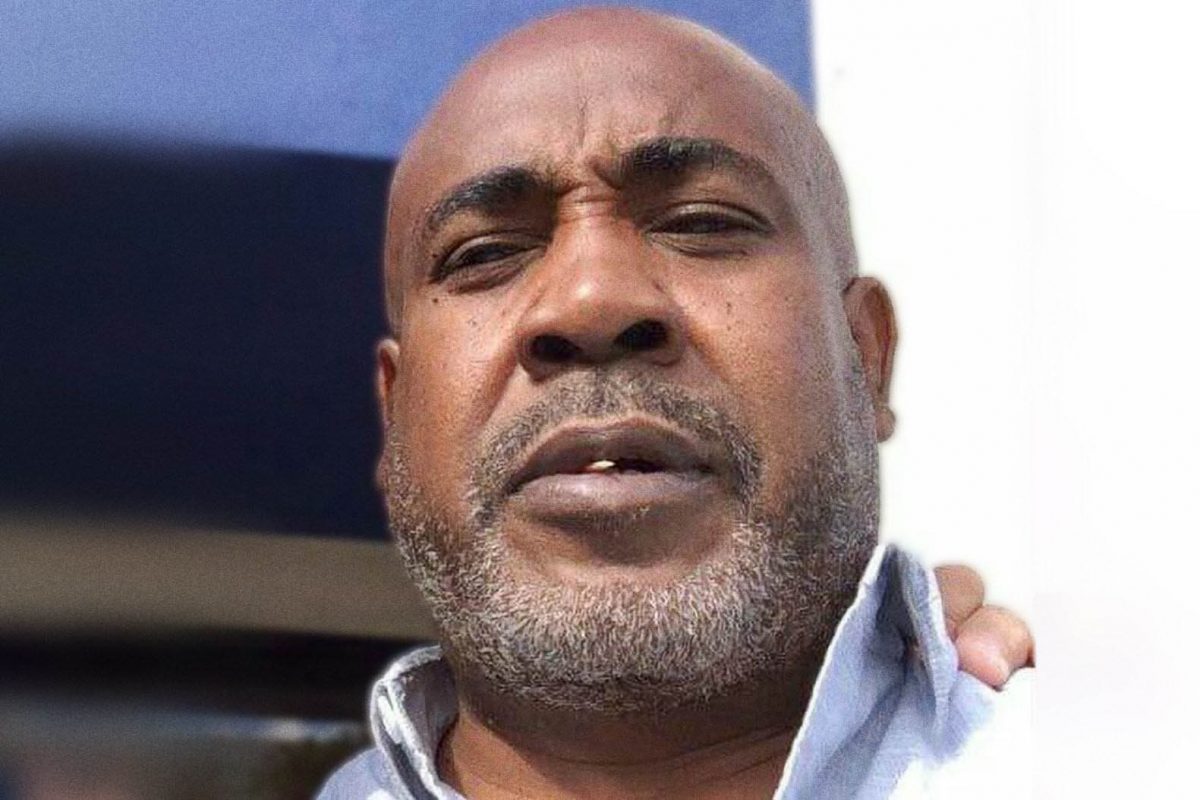(Reuters) – An admitted former street gang leader was arrested yesterday on a charge of murder in the Las Vegas shooting death of hip-hop star Tupac Shakur nearly three decades ago, a long-unsolved crime that became a defining moment in the history of rap music.
Duane “Keffe D” Davis, who police said was long suspected and began implicating himself in a series of public statements in recent years, was taken into custody outside his home a day after a grand jury in Clark County, Nevada, returned an indictment against him.
The indictment was presented during a brief hearing on Friday to a judge who ordered Davis, 60, to remain jailed without bond until an initial court appearance set for next Wednesday.
Davis was charged with one count of murder with a deadly weapon for his alleged role in leading a group of men to kill Shakur in a 1996 drive-by shooting near the Las Vegas strip.
Authorities described Davis as the “shot caller” of a hurried plot to avenge the beating of his nephew, Orlando Anderson, inside the MGM Grand Garden Arena by Shakur and members of his entourage on the night of Sept. 7, 1996, not long before the shooting.
Davis “orchestrated the plan that was carried out to commit this crime,” Metropolitan Police Department Lieutenant Jason Johansson said at a news conference.
It was not immediately clear whether Davis had secured legal representation.
Police showed hotel security footage of several men kicking and punching a person they identified as Anderson near a bank of elevators before security personnel broke up the altercation. One of those seen attacking Anderson was identified as Marion “Suge” Knight, co-founder and then-CEO of Los Angeles-based Death Row Records, which produced Shakur’s records.
That incident, Johansson said, led to “the retaliatory shooting death of Tupac Shakur.”
After obtaining a gun from an unnamed associate, Davis, along with Anderson and two other men, Terrence Brown and Deandre Smith, boarded a white Cadillac and rode off to locate the black BMW that Knight had driven away from the hotel with Shakur as his passenger.
When Davis and the others caught up to Shakur and Knight’s vehicle, shots were fired from the Cadillac into the passenger side of the BMW. Shakur, struck four times, died in a hospital six days later at the age of 25.
Knight, who was grazed in the head by a bullet fragment but suffered only minor injuries, was sent to prison the following month for violating terms of his probation in a previous assault case when he was caught taking part in the MGM melee.
Authorities did not say who actually fired the gun at Shakur. The three others in the Cadillac with Davis are all since deceased.
A rival “gangsta” rap star from the New York-based record label Bad Boy Entertainment, Christopher Wallace, was shot to death in Los Angeles in March 1997 in a murder that still remains unsolved.
Wallace, who performed as Notorious B.I.G., had become embroiled in an escalating East Coast-West Coast rap feud before his death, and his killing was rumored to have been a possible act of retaliation for Shakur’s murder months earlier.
Johansson said the violence at the MGM stemmed from animosity between two rival Los Angeles-area street gangs – the South Side Compton Crips, of which Duane was the reputed leader, and Mob Piru, with which Death Row Records and Knight were closely affiliated.
Members of both groups were in Las Vegas the night of the killing to attend a world heavyweight title boxing match between Mike Tyson and Bruce Seldon.
Johansson said detectives had pieced together most of the circumstances and people involved in the events that led to the shooting in the first few months of their investigation, but they long lacked admissible evidence to seek criminal charges.
The case was “reinvigorated” in 2018 by “Davis’s own admissions to his involvement in this homicide investigation that he provided to numerous different media outlets.”
Davis, a self-described gang leader, had admitted in interviews and in his 2019 memoir, “Compton Street Legend,” that he was in the Cadillac from which shots were fired at Shakur’s vehicle.
That sparked a renewed push by police to solve the case, leading investigators to obtain a search warrant for Davis’ home in July. Additional evidence uncovered there paved the way for the indictment, Johansson said.
Shakur, an influential performer widely regarded as one of rap music’s greatest artists, was also one of its most commercially successful, selling more than 75 million records worldwide.
He was best known for raw lyrics laced with violence, sex and profanity describing life in the ghetto. His album “All Eyez on Me,” released shortly before his death, celebrated his own outlaw image.
Beloved by his fans and detested by politicians for songs that sometimes celebrated violence and misogyny, Shakur was no stranger to trouble, having spent much of the last two and a half years of his life in and out of court, jail or hospitals.
Shakur, who became arguably more popular in death than in life, was inducted into the Rock and Roll Hall of Fame in 2017.
Knight, his manager, pleaded no contest in a Los Angeles courtroom in September 2018 to a charge of manslaughter for a 2015 hit-and-run killing in Compton, accepting a 28-year prison sentence under a deal with prosecutors days before his murder trial was to begin.









